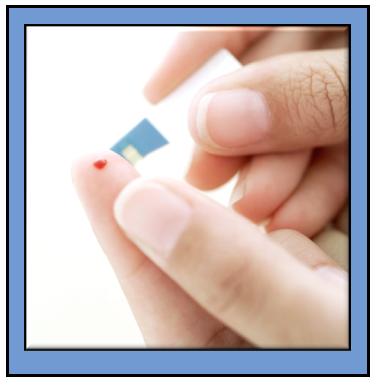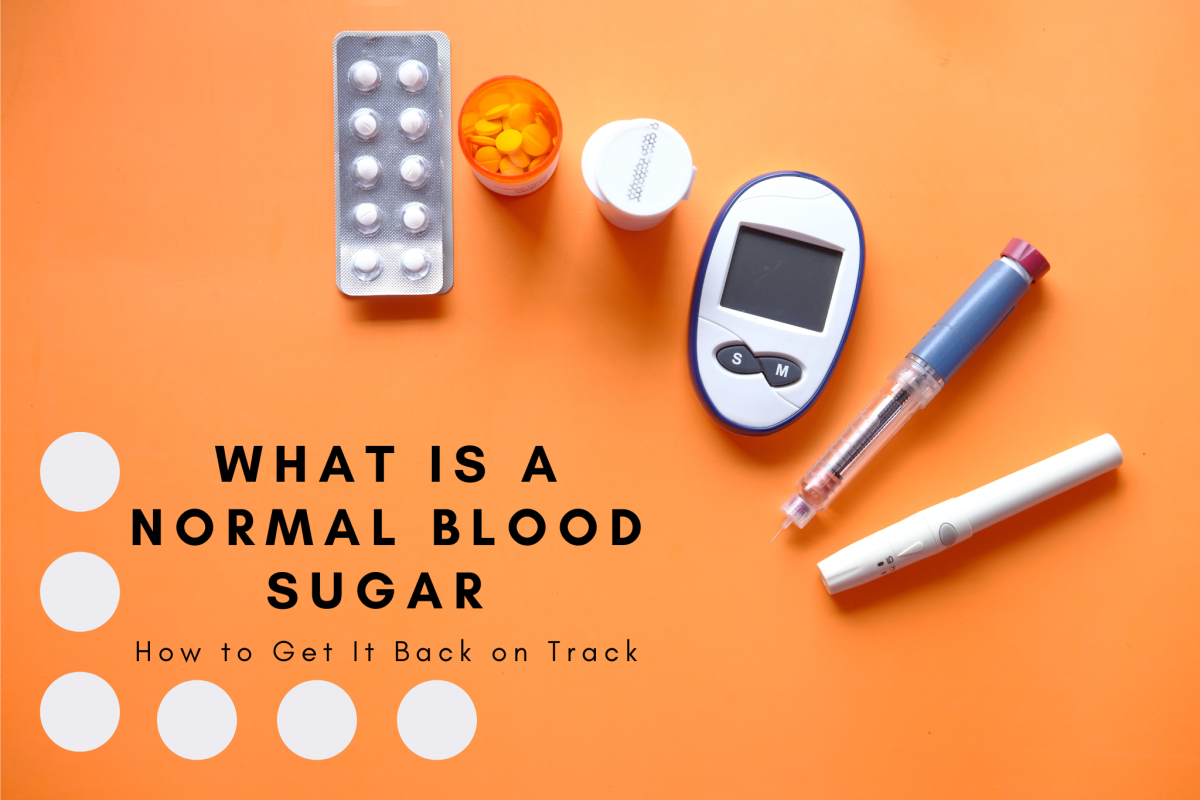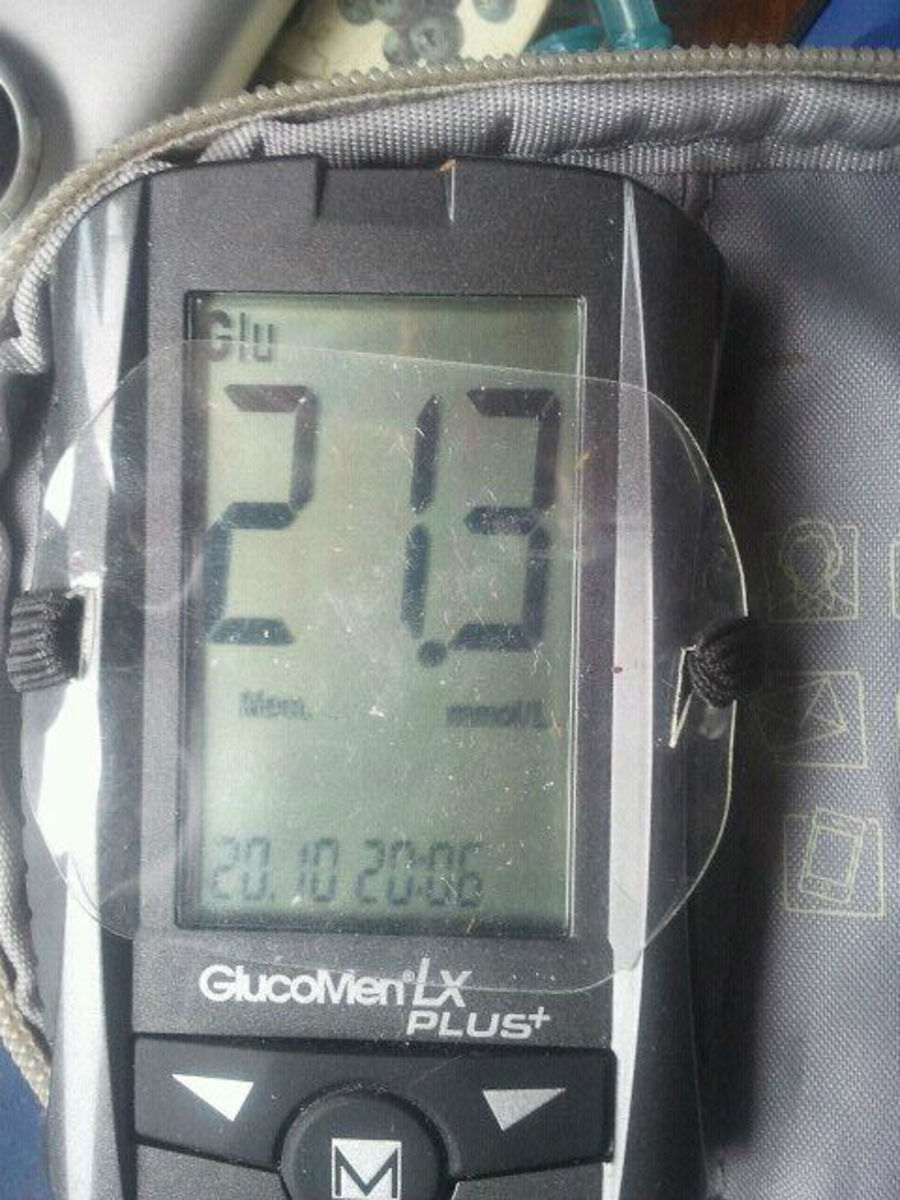Helping a Spouse with Diabetes

By Joan Whetzel
When learning that yours spouse has diabetes – either Type I (insulin dependant) or Type II – it can be stressful. Not only do you have to learn about the disease and how to manage the symptoms in an emergency, you have to learn a whole new lifestyle, and probably hardest of all, you need to find ways to help your spouse cope with and transition into the new lifestyle. How do you manage all these changes without permanently damaging the marriage.
Diabetes as a New Way of Life
Diabetes affects every aspect of life:
· The food you eat.
· The way you shop for food and cook it.
· The type and amount of exercise you do.
· Even your sex life.
· It means carrying around a blood sugar monitor and checking your blood sugars daily, and for some, several times a day.
· It means taking insulin shots for Type I diabetes and pills for Type II diabetes.
· It means regular checkups with a physician.
It doesn’t just affect the person diagnosed with diabetes, it affects the whole family. If there are children still living at home, they may have to adjust to having no snacks in the house, or less snacks. The whole family will have to adjust to a new diet a well as learning ways to help the spouse affected with diabetes by encouraging them while he or she makes the necessary lifestyle changes.
Despite the onset of diabetes in one spouse, married couples can maintain a strong and vital relationship by taking vacations together, spending special time together, going out on dates (yes, even to restaurants, most of which have diabetic friendly menu items that are as tasty as they are healthy), and by regarding diabetes as a new way of life that everyone can adapt to rather than as a problem or impediment that prevents them from doing anything fun ever again.
Offer Help, But Don't Police Their Every Move
At first, it’s quite easy to fall into the tempting habit of being the “diabetes police,” always telling the spouse what they can and cannot have to eat, strictly monitoring their blood sugars, and chastising one’s spouse every time they falter or get caught sneaking a food item they shouldn’t be eating. That is not a good habit to get into it is much better for the marriage to get out of it as soon as possible. It’s also better for the sanity of the non-diabetic spouse if he or she doesn’t have to monitor everything the diabetic spouse does and eats, every second of the day.
Ultimately, controlling blood sugar’s should be the responsibility of the diabetic spouse. The trick is to be supportive of their efforts without being overbearing about how they control their glucose levels, what they eat, and when they test their blood sugars. Encourage him or her to develop a regular schedule for testing blood sugar levels that works with their daily activities. Most blood glucose monitors these days keep records of blood glucose levels over time which eliminates the need to keep a journal of glucose levels. Taking the monitor to doctor’s visits makes it easier for physicians to see just how well the diabetic spouse is managing their blood glucose levels. It makes it easier for the diabetic spouse to see how he or she is doing too. In the long run, diabetic spouses feel better about their diabetes because they have physical proof that they control their diabetes, not the other way round.
It may take some encouragement to help the diabetic spouse remember to take their pills or insulin when it’s time, simply by asking “When do you need to take your (pills, insulin) again?” Asking comes off more as a reminder than dictating that they have to stick to the schedule. Like testing blood glucose levels on a regular schedule, taking medications on a regular schedule quickly becomes habit. Once diabetic spouses gets their blood sugars under control, they will start feeling better physically, as if they didn’t realize how bad they felt until they started feeling better. This, in itself, will serve as encouragement to stick to the diet and medication regime.
It’s still okay to ask from time to time how the blood glucose levels are going and how the medication is working. If all is going well, then cheer on your spouse. If the blood glucose levels aren’t being well managed, then you and your spouse can revisit the diet first and see if there is anything you can adjust there. If that doesn’t help, then you and your spouse can talk to the physician and see if there are other adjustments that can be made. Keep in mind that your spouse may wish to speak with or visit the doctor alone. Some want their spouses with them. Make it your spouse’s choice and support his or her choice. Initially, though it may be helpful if both spouses visit the doctor so that the non-diabetic spouse can find out what to look for with relation to the diabetic spouse’s specific needs, to have a good understanding of the medication dosages and side effects, and how to check blood glucose levels in an emergency.
As for diet, the best way to be encouraging is to change one’s own diet at the same time. It’s easier not to be tempted to fuss at a spouse cheating on their diet if that spouse gets to fuss right back at you. Also, keep in mind that the diabetic spouse is going to have bad days dealing with the disease on an emotional level. It is essential to be supportive during these periods. First, listen when he or she needs it, then do what you need to help cheer them up.
An Opportunity Change Everyone's Diet and Health Plan - For the Better
Don’t see changing over to a diabetic diet as a curse or a pain in the fanny because you have to cook one meal for the diabetic and another meal for everyone else. See it as an opportunity for everyone to eat better. Yes, everyone will probably groan and complain, but the diabetic spouse will appreciate the fact that he or she is not in this change of diet alone. Start off by easing into the changes, paying more attention to controlling portion sizes and eating generally healthier meals. This may require adapting some of your old recipes, using healthier ingredients (lower fat and lower salt) and adding more seasoning to keep them tasting better. Get the diabetic spouse involved in the cooking process – especially if they are not the one who did the cooking before. When shopping slowly start replacing the less healthy foods with healthier alternatives – especially snack type foods. By removing forbidden foods from the house – and not allowing them back in – the diabetic spouse will be less tempted to sneak the foods when no one is looking. This may be harder to do with children at home, especially when they want snacks for school lunch or afternoon snacks. In this case, keep only a few around, but carefully put away out of sight so that the forbidden foods are not sitting around tempting the diabetic spouse to cheat.
Another way to not tempt diabetic spouses is not to order dessert when dining out and not to make dessert at home. Of course, if the diabetic spouse really, really misses desserts (especially at the beginning of the transition to the new diet) there are several diabetic cookbooks and websites that have diabetic friendly dessert recipes. Check out the Splenda website as well. They have some great desserts using Splenda and nobody can tell the difference between the Splenda and the sugar desserts.
Help Your Partner Plan Exercise Into their Program
Have the diabetic spouse begin an exercise program that works for them Go along and work out with him or her – if they want you there – or allow the workout to be a solo workout. Either way, when diabetics see their spouses working out as well (even if they are separate workouts) they tend to feel reassured that they are not in this boat alone.
Learn Everything You Can About Diabetes
Learning what you can about diabetes keeps you prepared in case of problems – too much or too little insulin or pills, blood glucose levels not well controlled, or diabetes related health issues from uncontrolled blood glucose levels. You will know when to call the doctor and when you need to make adjustments at home. Diabetes complications (from uncontrolled blood glucose on a long-term basis) include blindness, poor circulation in the feet leading to a need for amputation, and kidney failure.
Diabetes and Its Toll on the Physical Relationship
The National Institutes of Health estimates that about 35 to 50% of men with diabetes suffer from erectile dysfunction. This can be quite frustrating for wives who have enjoyed their sex life in the past and are now faced with the lack of a physical relationship. It is helpful to remember not to take it personally. Your spouse is not rejecting you because he doesn’t find you attractive any more. Women with diabetes often suffer from vaginal dryness and discomfort during sex as well as more frequent vaginal infections, all of which can make sex difficult. Diabetes can cause fatigue in women making them feel worn out and not the least bit sexy. The best solution is for the couples to discuss the problem and get counseling if needed. Also be aware that there are treatments for erectile dysfunction, vaginal dryness, and low libido.
General Tips for Helping Spouses Recently Diagnosed with Diabetes
1. Be Positive with Your Spouses Progress – however small.
2. Help Find What Will Motivate Your Spouse to Stay on Track.
3. Make Changes in Small Increments Rather than Changing Everything All at Once.
4. Don’t Eliminate All Your Spouse's Favorite Foods, But Adapt as Many as You Can to the New Eating Plan.
5. Keep Healthy Snack Foods Around the House.
6. Make Sure the Food Has Plenty of Flavor by Adding Seasoning and Adding Fresh Ingredients with Lots of Flavor.
7. Make Exercise Fun (hiking, biking, swimming, dancing) and Work Out Together Whenever Your Spouse Wants to Do So.
8. Ask Professionals to Help Your Spouse with His or Her Diabetes. Your Spouse May Be More Willing to Listen to a Doctor’s Advice than Yours. (Don’t take it personally as long as they are getting good advice and following it.)
Resources
Web MD. 6 Ways to Support a Spouse with Diabetes.
http://diabetes.webmd.com/features/6-ways-support-spouse-with-diabetes
Instah. How to Support a Diabetic Spouse.
http://www.instah.com/diabetes/how-to-support-a-diabetic-spouse/
Castleman, Michael. Lifescript. How to Help Your Spouse Manage Diabetes.
Health Votes. Five Steps to Helping Your Spouse Manage Diabetes.
http://healthvotes.com/healthy-living/five-steps-to-helping-your-spouse-manage-diabetes/898








